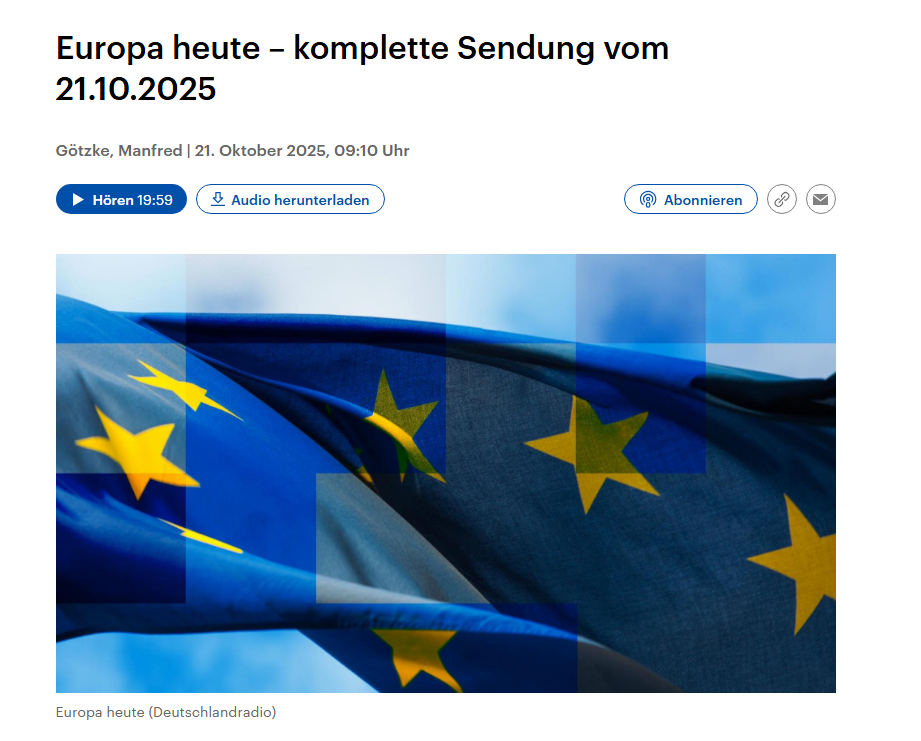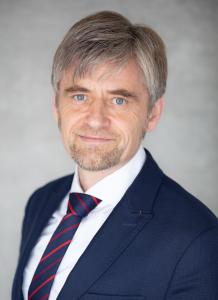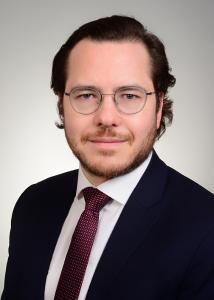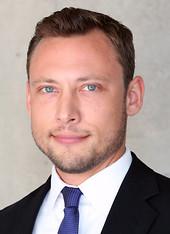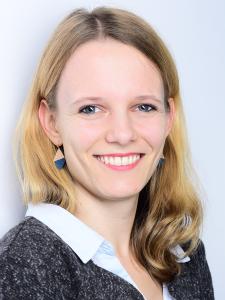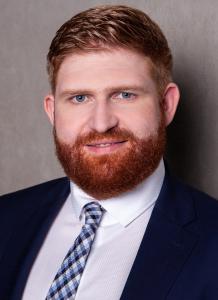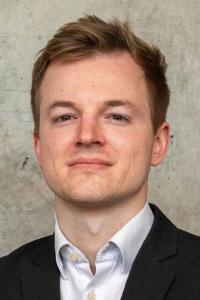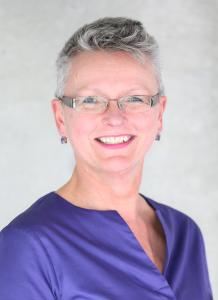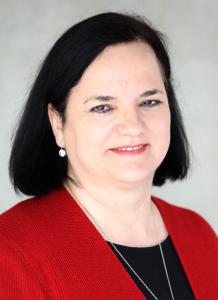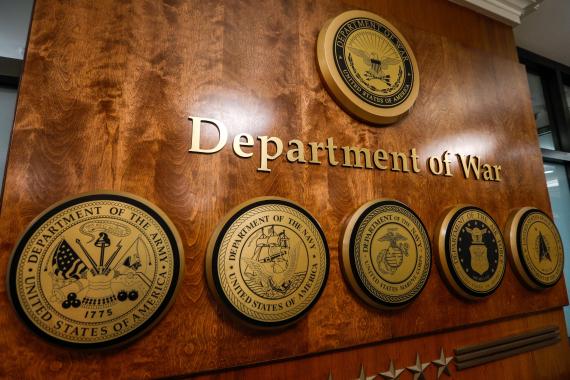Asset Publisher
Europe and North America
Asset Publisher
Our focus in Europe
The work of the Konrad-Adenauer-Stiftung’s Foundation offices in Europe is of particular importance. Our central concern is to strengthen and deepen European cooperation while at the same time stabilising bilateral links between the individual member states. In the face of the major challenges posed by the COVID-19 pandemic, the current focus, alongside economic and social recovery and a lasting resolution of the crisis, is on making the European Union as a whole stronger, fairer and more sustainable. In addition to global challenges such as climate change and increasing competition between systems, the focus is on digitalisation and innovation to strengthen Europe’s ability to act both internally and externally.
Party-political cooperation thereby is a particularly well-established tradition in Western Europe and an important instrument for KAS to promote the bilateral dialogue between the member states. However, changes to the party-political landscape across Europe is also putting established partnerships under increasing strain. In Southern Europe - among others due to the coronavirus pandemic - the image of Europe has recently become tarnished to some extent. Southern Europe has at times felt inadequately supported by its European partners in the three major crises - the coronavirus pandemic, the financial and the migration crises. In the coronavirus crisis, criticism of and dissatisfaction with the EU have now reached a new peak and are unfortunately beginning to manifest in fundamentally pro-European circles. It is this trend that the Foundation offices are seeking to counteract with their measures.
In view of the generally worrying increase in populist and nationalist stances in many countries of the EU, particularly in Southern and Eastern Central Europe, KAS’s measures continue to focus on supporting partner organisations in politics and civil society to strengthen their influence on policy-making and their role in the democratic system.
At the heart of the debate and the work of the KAS offices in Eastern Central Europe are the issues of security and defence policy alongside the current state and future of European integration. Here, it is the task and goal of KAS to restate the common European positions with greater vigour. Another focus is on cooperation with relevant state and civil society actors as they continue to come to terms with their communist past. In general, polarisation of the political landscape can also be observed in the region. For KAS, therefore, a particularly crucial task is to strengthen civil society as an important long-term stabiliser for relations.
Overall, the East-West divide between the old member states of the European Union in Western Europe and the new member states in Central and Eastern Europe has widened in recent years. These fractures are manifesting again and again in discussions about the rule of law, the independence of state institutions and the role of national identities, nations, patriotism and nationalism.
KAS also continues with high-profile events to work towards the rapprochement of the non-member states of the Western Balkans with the European Union, in South-Eastern Europe as well as in Brussels and Berlin, and to support regional cooperation within the framework of the Berlin Process initiated by Chancellor Angela Merkel. The interplay - and, in many cases, tension - between loyalty to values and interest-driven politics fundamentally shape the engagement in the Western Balkans, especially in the context of party-political cooperation.
In Eastern Europe, in view of Russia’s tense relations with the “West” and parts of its immediate neighbourhood, the focus continues to be on the geopolitical situation, as well as on the far-reaching and yet partially stalled political, economic and social transformation processes in the states involved in the EU’s Eastern Partnership. The work of KAS in Eastern Europe therefore focuses on supporting the establishment of democracy and the rule of law as well as social and economic development, while at the same time promoting rapprochement with the EU within the framework of the European Neighbourhood Policy and dialogue on regional security policy issues.
Our focus in North America
Under the US administration of former President Donald Trump, the perspective of the Konrad-Adenauer-Stiftung’s transatlantic work experienced a shift. In this occasionally unorthodox US administration, the viewpoints of Germany or the EU were not always well perceived. The discourses on reinforcing a common European position and focusing on Europe’s capacity to act gained momentum as a result. With regard to the new US administration under the 46th President Joe Biden, it remains important to advocate shared positions to find stronger common ground on key issues of the transatlantic relationship. While some basic strategic directions of the Trump administration are likely to remain, the return of the US to multilateral agreements is expected. With regard to NATO, the European partners should be prepared to be called upon to make more efforts within the framework of the defence alliance. The KAS office in the US is therefore engaging in matters of shared interest with Europe, such as trade, climate and security policy.
With five offices in Europe and North America, the Konrad-Adenauer-Stiftung is working on multilateral issues of concern to the international institutions and organisations located there. From the United Nations headquarters in New York, the Foundation’s office is working to strengthen the multilateral order and to promote democracy, human rights and the rule of law. The office there is also concerned with the issues of peace and security, the implementation of Agenda2030 and with Artificial Intelligence (AI) and digital technologies in the field of digital governance. From its Geneva office, the Foundation has been involved in the work of the World Health Organization (WHO) since long before the outbreak of the COVID-19 pandemic, where its contributions include reporting, background discussions, informative events and publications. Other focal points include the issues of world trade, refugee movements and migration, human rights, humanitarian aid and digitalisation. The Washington D.C. office monitors the work of the World Bank Group. From its Brussels office, the Multinational Development Policy Dialogue of the Konrad-Adenauer-Stiftung concerns itself with the external dimension of the work of the European Union. From its base in Vienna, the Konrad-Adenauer-Stiftung deals, among other things, with issues of arms control and peacekeeping.
Twitter accounts of our offices
Asset Publisher
Topic pages of the Konrad-Adenauer-Stiftung
We are significantly involved in the following KAS-wide thematic pages. Here you will regularly find various contributions (including publications and events) from our department.
Asset Publisher
Asset Publisher
Asset Publisher
Publications on this topic
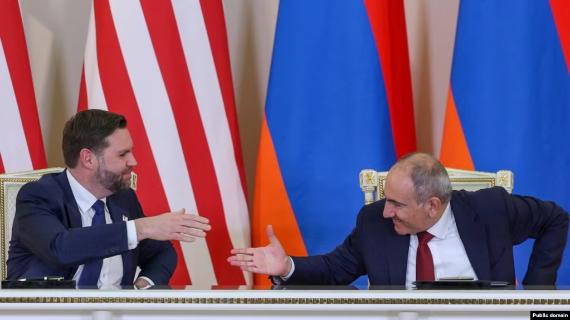 CC0 1.0 Universell
CC0 1.0 Universell
Vance in Armenia – A Tailwind for Yerevan?
As the first U.S. Vice President, JD Vance visits Armenia– TRIPP, defense cooperation, and new momentum in the peace process.
-
Florian Binder, Marlon Husmann, Jakob Wöllenstein
-
February 13, 2026
-
Country reports
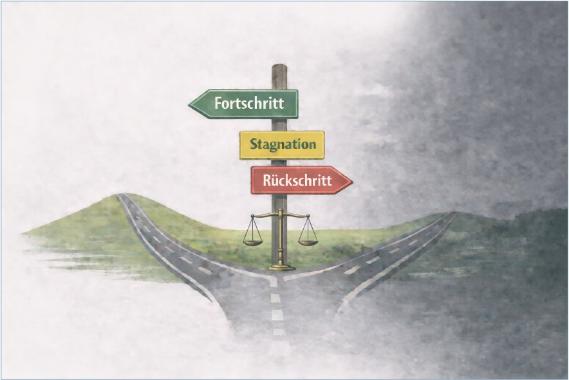 KI M365 CoPilot
KI M365 CoPilot
Rule of Law in Southeast Europe 2025
A Region at the Crossroads: Progress, Stagnation, and Decline
-
Dr. Pavel Usvatov, Dr. Mahir Muharemović
-
February 11, 2026
-
Country reports
 IMAGO / ZUMA Press Wire
IMAGO / ZUMA Press Wire
Local elections in France in 2026
A barometer for the presidential elections
-
Anja Czymmeck, Max Willem Fricke, Nele Katharina Wissmann
-
February 5, 2026
-
Country reports
 KAS/Althusmann
KAS/Althusmann
Is a ‘world order in upheaval’ leading Canada into a new leadershiprole?
Why geopolitical upheavals will redefine Canada's role in the international world order and in the transatlantic alliance
-
Dr. Bernd Althusmann, Marie Yamada
-
February 5, 2026
-
Country reports
 IMAGO / ABACAPRESS
IMAGO / ABACAPRESS
France 2026
A challenging year in the shadow of the presidential elections
-
Anja Czymmeck, Max Willem Fricke, Nele Katharina Wissmann
-
January 14, 2026
-
Country reports
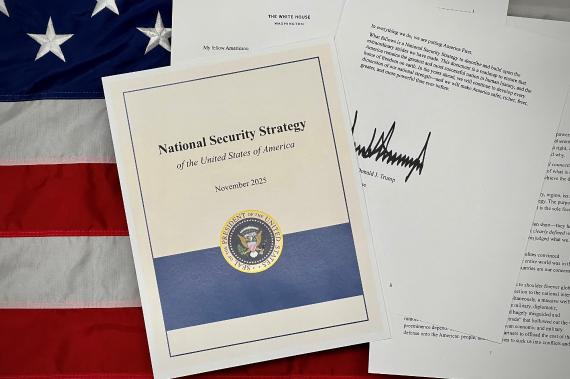 KAS
KAS
The New U.S. National Security Strategy
Trump’s View of the World
-
Dr. Hardy Ostry, Maša Ocvirk
-
December 18, 2025
-
Country reports
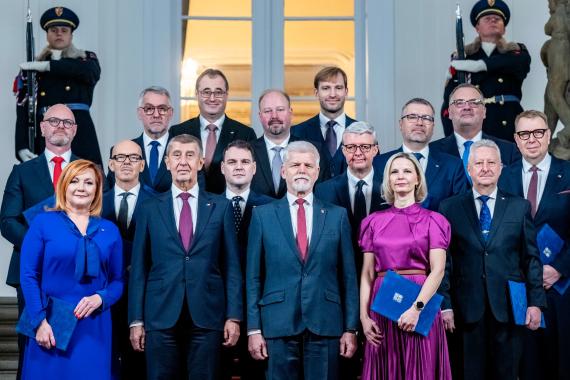 IMAGO / CTK Photo
IMAGO / CTK Photo
Change of Government in the Czech Republic: A Test for Democracy?
Babiš returns to the office of Prime Minister thanks to the inclusion of right-wing extremists.
-
Dr. Marco Arndt, Alena Reslová, Martina Beránková
-
December 17, 2025
-
Country reports
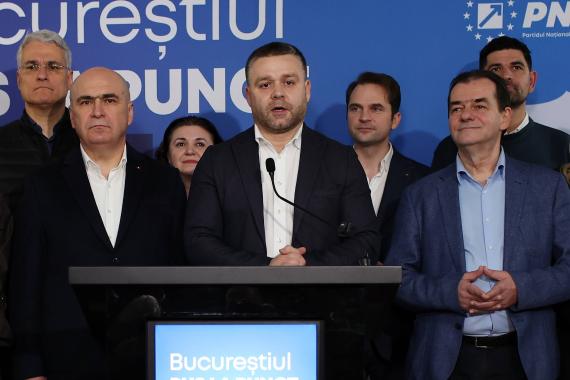 IMAGO / Xinhu
IMAGO / Xinhu
Mayor election in Bucharest: An unexpected, clear victory with a bitter aftertaste
PNL candidate Ciprian Ciucu wins the Bucharest mayoral election, but populists are applying pressure.
-
Dr. Stefan Hofmann, Mihai Marc
-
December 9, 2025
-
Country reports
 VMRO-DPMNE
VMRO-DPMNE
Local elections in North Macedonia: Convincing victory for ruling parties
Vote of confidence for the government one year after the parliamentary elections
-
Daniel Braun, Davor Pasoski
-
November 21, 2025
-
Country reports
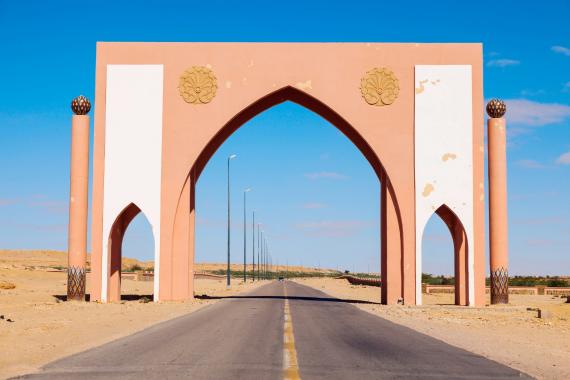 IMAGO / YAY Images
IMAGO / YAY Images
Resolution 2797
A historic step in the Sahara conflict
-
Steven Höfner
-
November 4, 2025
-
Country reports
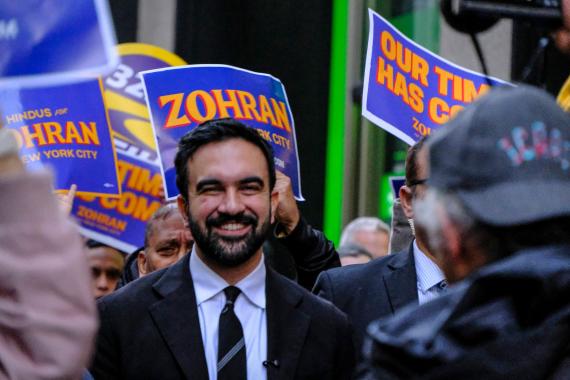 IMAGO / MediaPunch
IMAGO / MediaPunch
Local Elections, National Significance
November Elections in Several U.S. States are Decisive for Political Parties
-
Dr. Hardy Ostry, Jan Bösche
-
October 23, 2025
-
Country reports
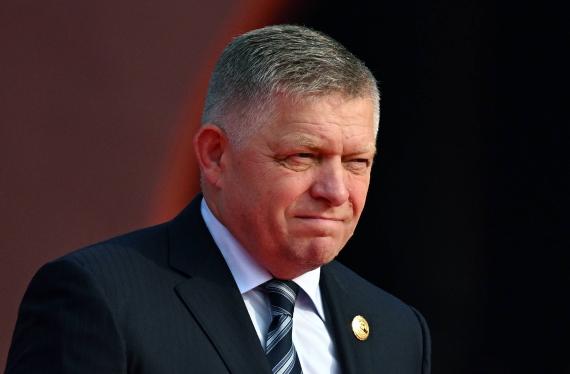 IMAGO / SNA
IMAGO / SNA
Surprising majority
Slovakian Parliament passes conservative constitutional amendment
-
Dr. Marco Arndt, Michal Petrík
-
October 21, 2025
-
Country reports
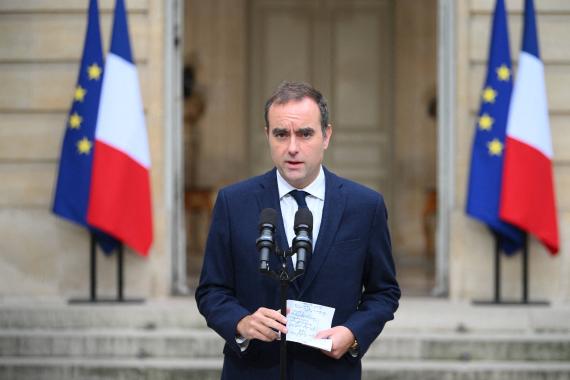 IMAGO / Bestimage
IMAGO / Bestimage
Political balancing act in France
Gaining time as a strategy of the Lecornu II government
-
Anja Czymmeck, Nele Katharina Wissmann
-
October 17, 2025
-
Country reports
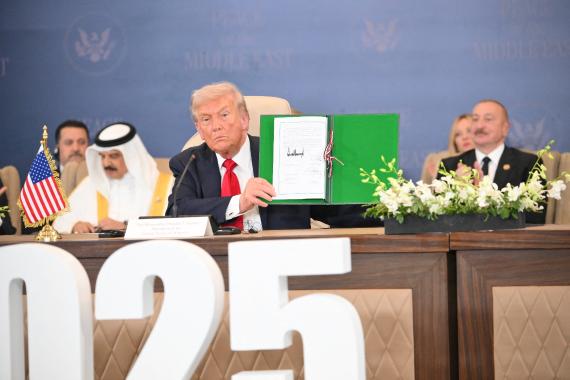 IMAGO / ABACAPRESS
IMAGO / ABACAPRESS
U.S. Reactions to Trump’s Middle East Peace Plan
Celebrations and Questions after the Ceasefire
-
Dr. Hardy Ostry, Jan Bösche
-
October 16, 2025
-
Country reports
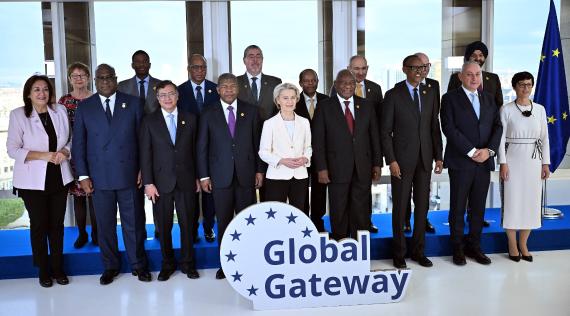 IMAGO / Anadolu Agency
IMAGO / Anadolu Agency
Global Gateway Summit - New impetus for pragmatic partnerships
The second summit of the EU's Global Gateway infrastructure initiative courts partner countries and the private sector
-
Dr. Olaf Wientzek, Sven Nicolay
-
October 16, 2025
-
Country reports
 IMAGO / ANP
IMAGO / ANP
The Netherlands before the elections
Current polls indicate difficulties in forming a majority
-
Dr. Beatrice Gorawantschy, Domien te Riele
-
October 15, 2025
-
Country reports
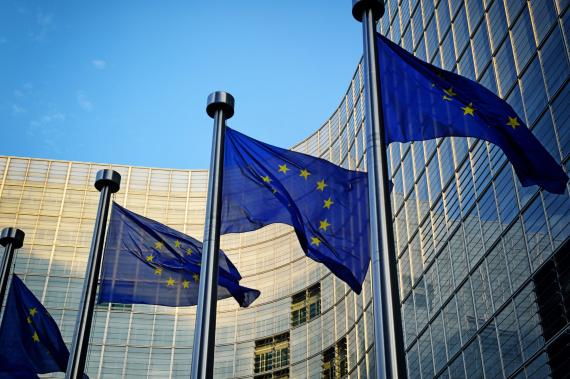 SmarterPix / symbiot
SmarterPix / symbiot
More flexibility, less control?
Reorientation of the financial instrument for the EU's future partnership policy
-
Dr. Olaf Wientzek
-
October 13, 2025
-
Country reports
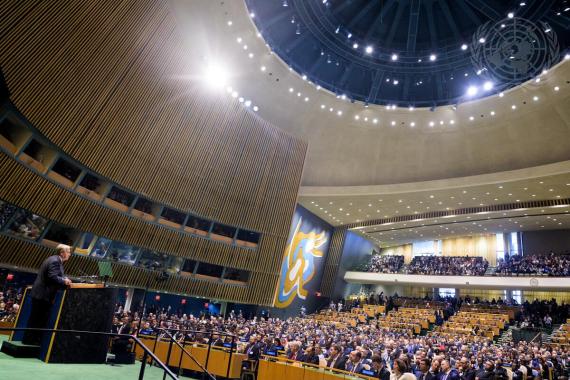 UN Photo / Manuel Elías
UN Photo / Manuel Elías
Reflection, Reckoning, and Resolve at UNGA80
Eighty years on, can the United Nations channel its founding spirit to tackle the challenges of our time?
-
Thomas Tödtling, Dr. Mónica Castillejos-Aragón, Erica Mumford, Teresa Val
-
October 6, 2025
-
Country reports
Asset Publisher
Media library
Partnerschaften sind Grundlage für Vertrauen
Tanja Gönner, Director General of the Federation of German Industries (BDI) and a member of the KAS Board of Directors, visited Washington, DC. (Video in German)
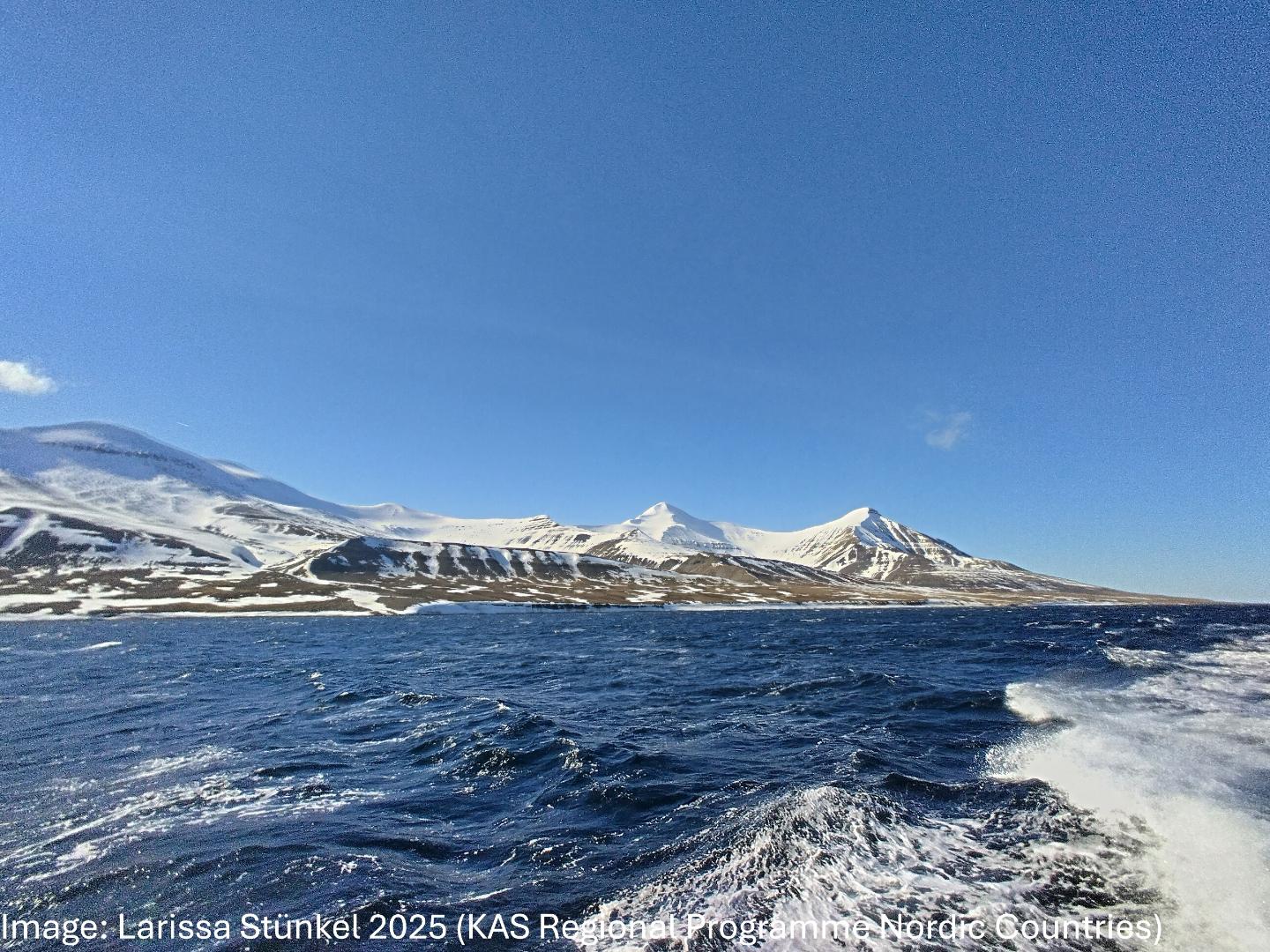
Short Takes - The EU & NATO in a Changing Arctic
Andreas Østhagen & Andreas Raspotnik on the EU and NATO in a changing Arctic environment!
Read now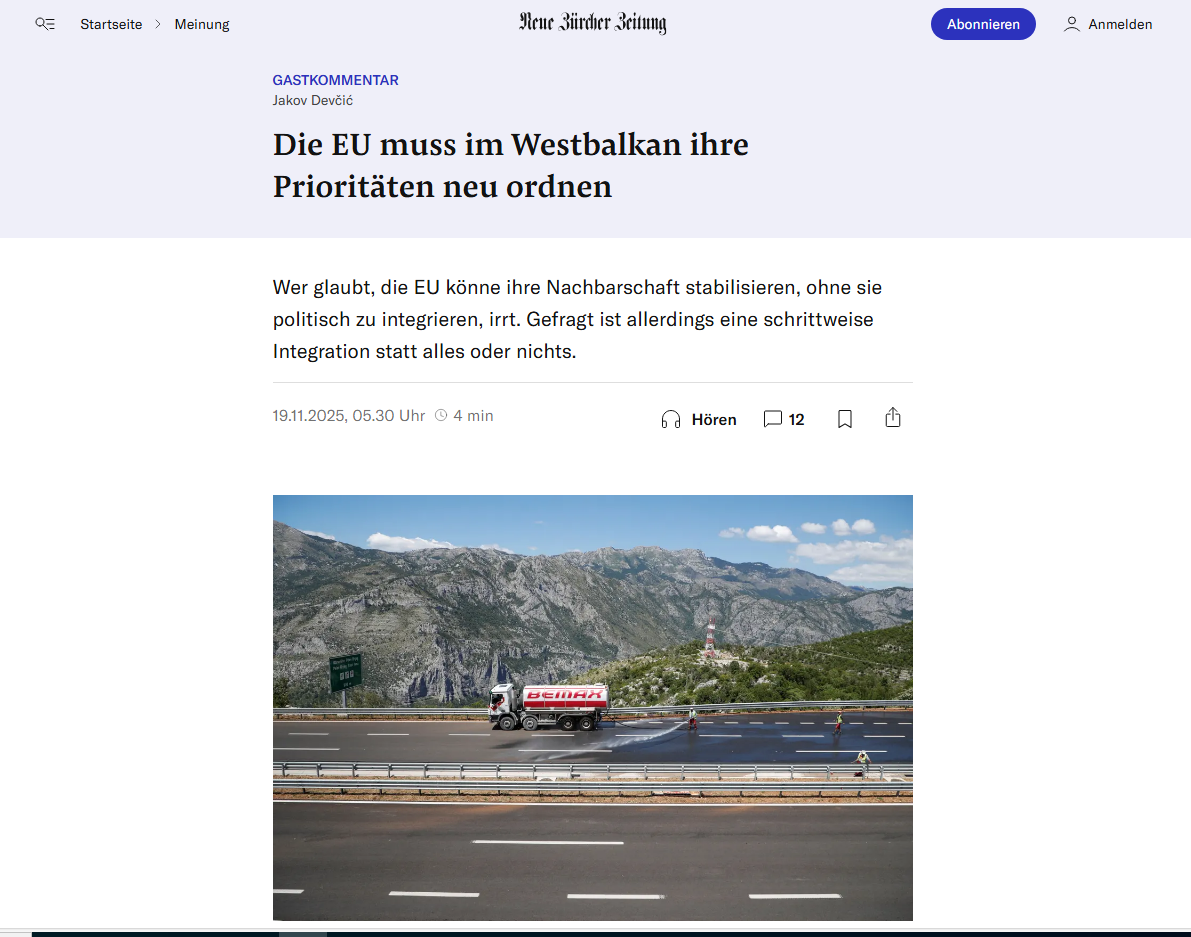
In einem Kommentar für NZZ erklärt Jakov Devcic die Notwendigkeit einer agileren EU-Erweiterungspolit...
Es wird die wachsende geopolitische Bedeutung des Westbalkans beleuchtet. Eine schrittweise Integration der Region ist für Europas Stabilität entscheidend.
Read nowRepublic of Moldova – A new beginning in the shadow of Russian influence
The Republic of Moldova has once again voted pro-European – despite disinformation and Russian pressure. What does this new beginning mean for Europe's stability and security?
